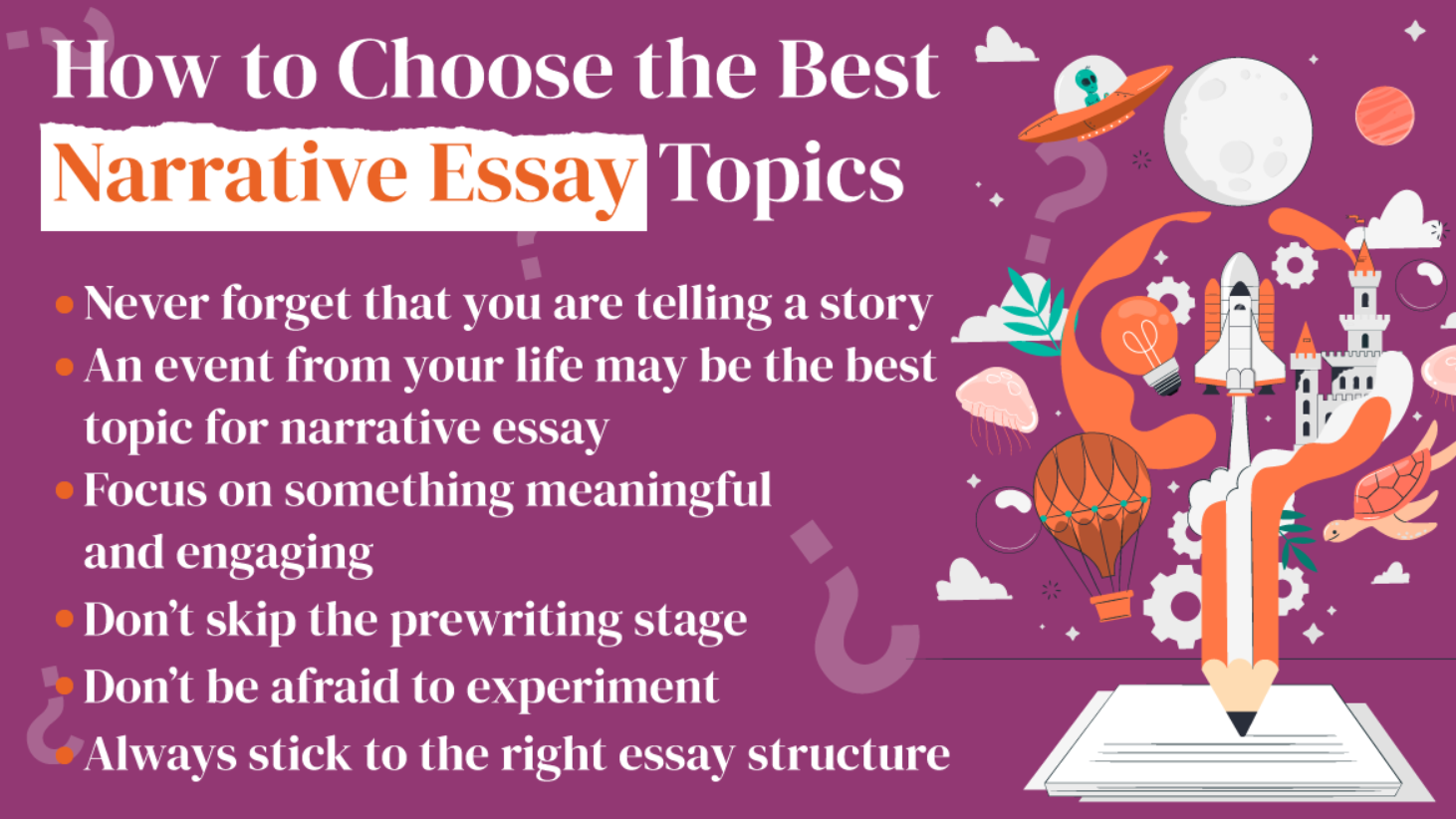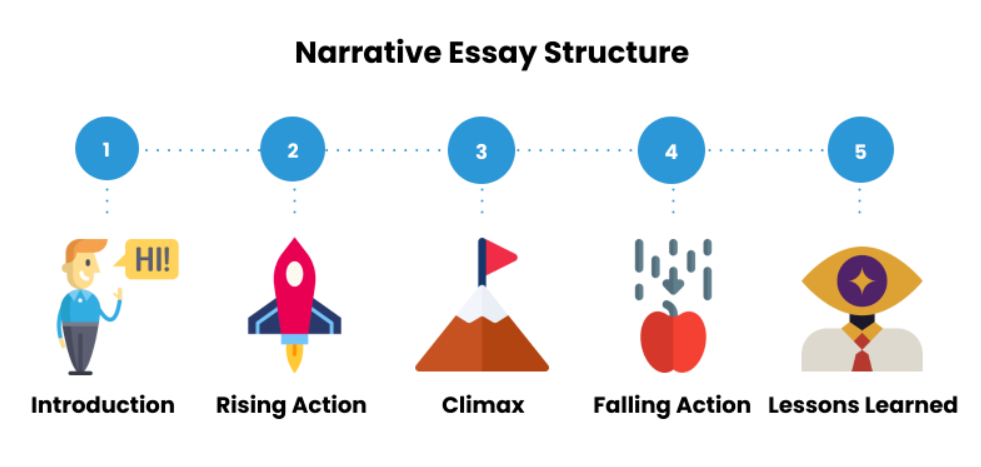
Narrative writing refers to providing any information in the form of a story. Narrative writing is also known as the art of storytelling. This is true for all forms of writing, which may include a bibliography, novel, essay, or article. The ability to write narrative writing is essential in attracting the attention of the raiders by telling them stories about different events. Narrative writing is generally based on real-life or fictional events. Narrative writing generally follows a specific structure and runs chronologically. Narrative writing consists of different types of elements.
What is a narrative essay?
A narrative essay is a type of essay that expresses its information in the form of an essay. Narrative writing or essays generally focus on the writer's personal experience and help share engaging lessons and experiences gained in their life.
Essential elements used in narrative writing
Plot: It is one of the most essential elements of any narrative writing essay. It helps in driving the different parts of the story systematically. The plot of a narrative writing is generally made up of 4 essential elements. These are the introduction and action, the climax, and the conclusion. A compelling story should have a distinct beginning, a middle part, and a distinctive ending in a systematic order. This helps in creating a logical narrative writing by the writer. The plot of narrative writing should provide information regarding the problem statement that led to the action taken in the narrative essay and help create the suspense that grabs the readers' attention.
Point of view: It is the perspective in which a narrative essay is told to the readers. The voice of the narrative essay can be first, second, or third person based on the situation in the essay. The point of view plays a vital role in making the readers understand the writer's perspective and the amount of information they receive from the essay. The voice or point of view used in the narrative essay should always be consistent and focus on the essay's aim.
Theme: Theme refers to the primary message or idea that an essay wants to convey to the audience with the help of a narrative essay. The theme used for the essay can be either implicit or explicit, depending on how the writer has started the writing. It is also advisable to support the theme of the essay with different symbols, images, motifs, and dialogue.
Characters: The different animals and human beings that participate in the narrative writing or essay are known as the characters of the essay. These characters can be negative or positive depending on the writer's requirement and the essay's genre. The characters in the essay should have distinct features, traits, motivations, and personalities relevant to the narrative writing topic and can help grab the readers' attention.
Setting: The setting refers to the place and time where the events of the narrative essay happen. The setting helps in proving the background and context of the event, which allows the readers to connect with the narrative of the writing.

Difference between narrative essay and other types of essay:
There are many types of essays, such as argumentative, easy, descriptive, and persuasive. However, narrative essays are very much different from these types of essays. Narrative essays can be both fictional and non-fictional, depending on the type of essay and the writer's purpose. Some of the essential features of narrative essays are
- Narrative essays are generally written in the first person, and pronouns such as I and the writer use us. This helps the writer share their experiences and feelings with the audience. On the other hand, all other essays are generally presented in the third person and use an impersonal way of writing.
- Narrative writing is generally written in a plot that follows a well-defined structure and plot, which helps conclude the story. Other types of essay needs this type of plot or structure.
Helpful tips for writing narrative essays:
- Please select the topic per the audience's interest: For writing a quality narrative essay, it is essential to select a story that suits the audience's interest. This is also considered helpful in attracting many raiders for the story.
- Conducting in-depth research: Collecting and gathering information regarding the topic selected is essential in improving the quality of the narrative essay. As per the aim of the narrative writing or essay, the writer can choose different sources of information such as interviews, surveys, articles, and books. Moreover, it is also essential to use credible sources of information for completing the narrative writing as it helps in the authenticity of the narrative essay.
- Creating a format: To improve the quality of the information provided in the essay and make the audience understand the theme of the essay, it is essential to prepare an outline of the essay and chronologically organise all the information. The outline of the narrative essay should consist of an introduction, main body, and conclusion.
- Use of descriptive language and draft: Descriptive language is vital in narrative writing or essays as it helps make the story exciting and vivid. It is also advisable to use clear and short sentences in the narrative writing as it helps provide clear information to the raiders and reduces the chances of any confusion in the minds of the readers. It is also important to avoid slang and use transitions in the essay.
- Editing and revising: The final step in preparing the narrative essay. In this step, it is essential to check the information provided to identify any grammatical mistakes the essay creates. Reviewing the essay helps improve the overall quality of the information provided in the narrative essay.
Narrative essay outline:

- Introduction: The introduction of a narrative essay should attract the readers' attention. It could begin with a statement, anecdote, or statement.
- Body paragraph: It contains detailed information about the story, providing information regarding the writer's personal experiences during the event.
- Conclusion: It should begin by restating the theme of the story. It summarises the main arguments the writer made in the narrative writing.


